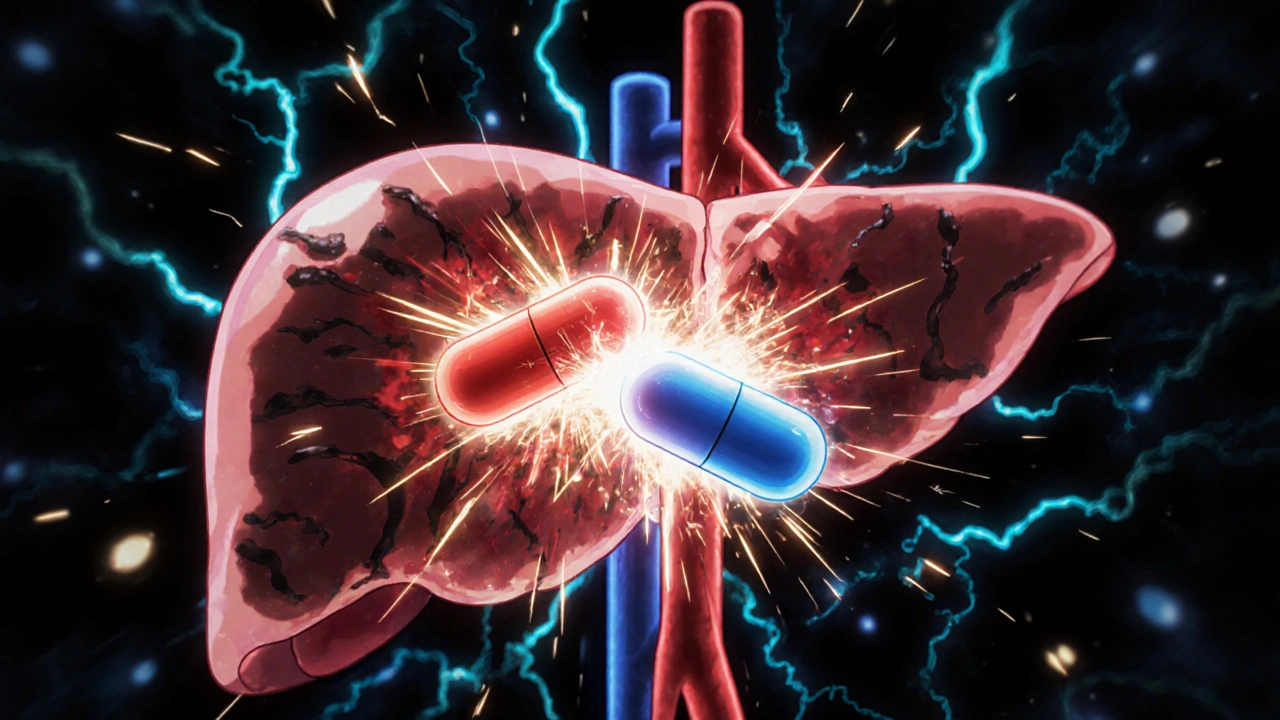Drug Metabolism: How Your Body Processes Medications and Why It Matters
When you take a pill, it doesn’t just sit there waiting to help you. Your body drug metabolism, the process by which your body breaks down and transforms medications into forms that can be eliminated. Also known as medication processing, it’s the reason why two people taking the same dose can have completely different results. Some people feel the full effect of a drug right away. Others barely notice anything. That’s not just luck—it’s chemistry, genetics, and your liver working behind the scenes.
At the heart of drug metabolism are liver enzymes, special proteins that chemically alter drugs so they can be cleared from the body. The most important group is the cytochrome P450, a family of enzymes responsible for processing over 75% of all prescription drugs. These enzymes don’t work the same for everyone. Age, diet, other meds, even smoking or drinking can turn them up or down. Grapefruit juice? It shuts down a key enzyme, making some heart meds too strong. Birth control pills? They can slow down how fast your body clears other drugs. These aren’t side notes—they’re critical parts of how your body handles medicine.
Drug metabolism isn’t just about making drugs work. It’s about avoiding danger. If your body breaks down a drug too fast, it won’t help. Too slow, and it builds up to toxic levels. That’s why some people get sick from normal doses while others need higher ones. It’s also why combinations like statins and grapefruit juice can be risky, or why certain antibiotics cause yeast infections by messing with your gut’s natural balance. The same enzyme that handles your blood pressure pill might also be busy processing your painkiller or your antidepressant. When they compete, things go wrong.
You don’t need to memorize enzyme names to stay safe. But you do need to understand that your body doesn’t treat all drugs the same. What works for your friend might not work for you. That’s why your pharmacist asks about every supplement you take—even the "natural" ones. That’s why your doctor checks your liver function before prescribing certain meds. And that’s why some people need to split pills or take them at different times to avoid interactions.
The posts below dive into real cases where drug metabolism made the difference between healing and harm. You’ll see how heart meds interact, why GLP-1 drugs cause nausea, how antibiotics trigger yeast infections, and why some people take separate pills instead of combo tablets. You’ll learn how to spot when your meds might be fighting each other—and what to do about it. This isn’t theory. It’s what happens in your body every time you swallow a pill.
CYP450 Enzyme Interactions: How Medications Compete for Metabolism
CYP450 enzymes metabolize 90% of medications, but drug competition can cause dangerous interactions. Learn how common meds like statins, antidepressants, and blood thinners clash - and how to stay safe.

